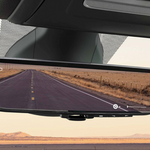Ford will be working with Argo AI— an autonomous vehicle (AV) software company and the ride-share service Lyft, to bring autonomous mobility service in Miami and Austin.
If you had been watching closely, you knew Ford had a plan.
Over the past 5 years, the American automobile manufacturer made strategic acquisitions and partnerships that indicated autonomous vehicles were an integral part of the company’s future.
The shrewd observer also saw that Ford’s plans went beyond just selling autonomous vehicles to consumers, but also addressing the growing mobility issues of a changing landscape. The big endgame has begun to emerge.
One of the aforementioned acquisitions included an ownership stake in Argo AI, an autonomous vehicle software platform developer.
This was an interesting development because it included an agreement with German automaker Volkswagen to share Argo AI’s technology, as well as Volkswagen’s Modular Electric Toolkit (MEB).
Now, Ford has announced the actual deployment of a fleet of self-driving vehicles, that will provide ride-share services via the Lyft network. Ford will begin offering the services in Miami, Florida later this year, and in Austin, Texas in 2022.
While the vehicles will be driving autonomously, a safety driver will be in the vehicle.
Don’t mistake this as some type of publicity stunt or experiment. Ford, Argo AI and Lyft have plans to expand the program to deploy at least 1,000 self-driving vehicles in multiple markets over the next 5 years via the Lyft.
The collaboration is designed to scale autonomous vehicle deployment using market and safety data that helps define where self-driving technology can safely serve consumers.
As part of the agreement, Argo will use anonymized service and fleet data from Lyft to overcome the challenges faced by other autonomous vehicle companies by focusing on where they can build a sustainable business and validate deployment through localized safety data.
In addition, Lyft will receive 2.5% of the common equity of Argo AI as part of the licensing and data access agreements to collaborate on the safe commercialization of autonomous vehicles.
Ford seems to be well-positioned for the future of mobility. The key understanding to the company’s strategy relies on how people will utilize transportation in the near future.
Instead of ownership, the public simply wants an efficient and cost-effective way to get where they want to go. They don’t want maintenance costs and 5 years of payments. Ride-sharing self-driving cars resolve many of these issues. But that will require an entirely different way of doing business for automobile manufacturers.
Also take note of the needs of the commercial fleet segment as well. Meaning not only would a UPS use AVs for delivery, but municipalities could replace public transportation systems with ride-sharing style service offerings. The services would include operations such as fueling, servicing and cleaning.
The future for Ford has begun.
![banner right]()
![banner right]()












